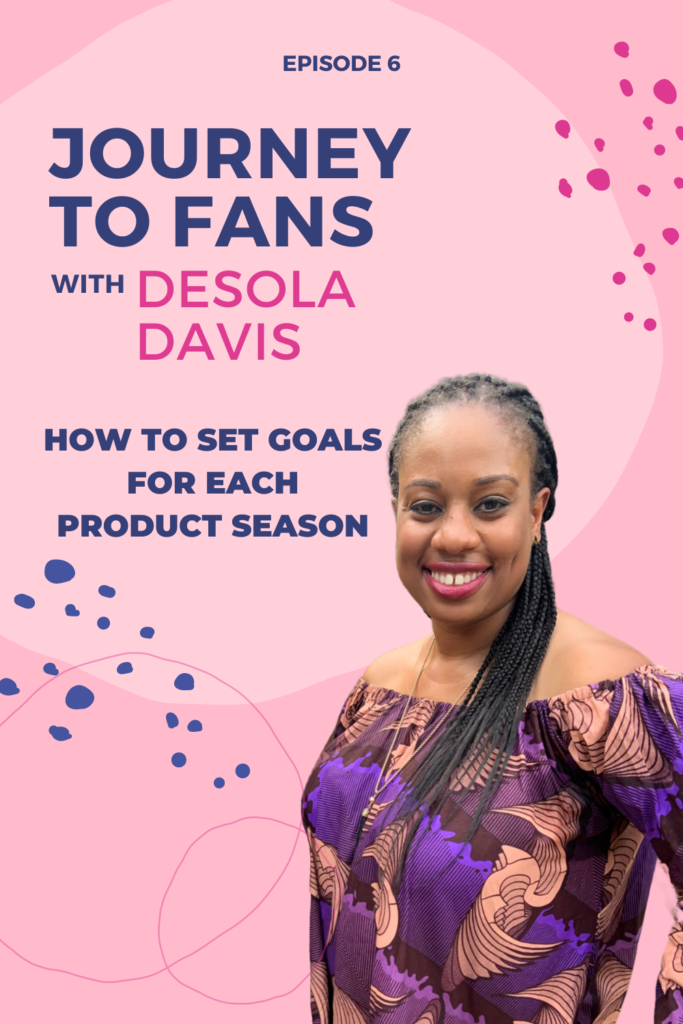Before I transitioned my business into helping people grow their own community of raving fans, I started my business as a productivity and goal setting specialist. I’m a little bit of a fanatic when it comes to goals. I love setting them, reviewing data as I work towards them, and seeing them achieved.
More than that, it’s always really cool to see how I change and who I become as I work towards a goal. Beliefs that I am confronted with, paradigms I have to shed, and perseverance and discipline that I have to sum up to reach goals.
That said I’m just excited about goals and I know as a business owner, it’s important that you have business goals so you can celebrate when you get there. But sometimes it’s hard to set business goals. Sometimes you can set smaller business goals because you don’t want to fail. Other times you overreach and beat yourself up all the way there so you don’t actually enjoy the journey, or even the destination.

Three mistakes business owners make when setting business goals
Using other people’s business goals
Some owners “borrow” or steal other people’s business goals and try to adopt them for their own business. They believe that since these are mentors that they look up to, that their business goals will also be beneficial. They swipe the goal as if it’s a recipe that will yield the same outcomes as the person who originally set them. They don’t think about other factors that contributed to their mentors’ decision making and whether they apply to their business model.
So unfortunately they don’t achieve their business goals and they blame themselves for their lack of success. They keep trying harder and working longer, hopping from strategy to strategy, hoping that something will finally stick. In the meantime, their mentors and competitors continue to get better and better because they’re running in their own lane.

Setting business goals without regard for other facets of their life
If I’ve said it once, I’ve said it a thousand times. We are multifaceted, multidimensional beings. We need to pay attention to things outside of the business that help us show up more whole inside of the business. What matters most to you? What do you value most in this world? For me, these things are faith, family, friendship, and fun. All these things take precedence over the future that I’m building in partnership with God. And I have to make sure that these areas are considered while I’m setting my business goals.
When you don’t consider your other priorities, this leads to burnout. Because you’re unclear on your “why”, you won’t be motivated to sustain momentum in your activities.
Ignoring the most pressing business problem
Mike Michalowicz wrote a great book about this called Fix This Next. As an entrepreneur, you’re used to solving problems externally (with your products and services) and internally within your departments. Just so you know, even if you’re a solopreneur, your business has departments. You just happen to staff all of them right now.
If you don’t have a clear method of prioritizing which problem to focus on, you’ll end up buried and overwhelmed by them, while you’re addressing less important symptoms of bigger issues.
Understanding the four seasons of business
Creating
In the creating season, you have a great business idea but you’re testing out different ways to package and offer it with your audience. Sometimes you’re even trying out different audiences that may be interested in your offer.
This is your season to not be afraid to break things and fail quickly. You’re collecting a lot of data to understand the needs of people who would be willing to part with money in exchange for your solution.
You’ll be primarily focusing on educating your audience about the problem and the solution and constantly inviting them to take the first step in working with you. The more leads you’re able to generate, the greater pool of people you can extend an invite to test your product.
You’re in close contact with interested prospects and optimizing your product. Income goals are irrelevant here, because you’re not clear on the value of the transformation you provide yet. You’re working in 90-day sprints and closely monitoring market responses to your offer.
Growing
The growing season calls for you to put your focus on growing the reach and impact of your product and serving as many people as you can. Trying out new marketing strategies and occupying your space as thought leader in solving that problem with your product. You’re not so much experimenting with the packaging of your product as you are with its positioning.
Your visibility is increased as you get in front of other audiences through collaboration, advertising or other methods. As you attract more people, you continue converting your ideal clients through your proven methods.
You have also set quarterly and annual business goals to review the impact of your strategies on the outcomes you project. Income goals definitely make sense, as you’re exploring the best strategies to reach your ideal client market. Don’t forget you’re not just interested in one sale, you’re interested in attracting someone who will buy again in the future.

Stabilizing
In the stabilizing seasons, you’re optimizing your business to handle additional growth. Specifically, you are optimizing your processes, systems and team to support the overall vision of your business. You also understand the positioning and packaging of your product, and now you’re growing internally to expand your impact.
Another thing you are doing is solving for bottlenecks and linchpins. Aka making sure that multiple people know how to complete key tasks so that people can do things like take time off. And by people I mean you.
Here you’re focusing more internally on growing and developing your team. First, you’re training them on the proven strategies that work for selling your product. But you’re also training them on your business culture and developing them to drive your vision forward. You’re creating business goals for them to surpass previous thresholds that you hit in your business. They likely have quarterly and annual goals themselves, but you’re also clear on the 3 year vision for your company with your newly expanded team.
I will say here that you may also be toying with new ventures to continue to solve problems for your key audience or a different audience altogether. You can leverage your expertise in one area for social proof that you’re trustworthy in another. This does restart your product cycle to the Creating stage.
Fortifying
Fortifying is the fourth season of business. In this season, you should prepare for all throughout the other seasons. You should have income stashed away to keep your business running even as you endure the season. You’re leaning up and reevaluating your spending. Reducing your overhead and changing your sales and marketing strategies to adapt to the times. Your business goals are to mitigate your losses as you continue your essential tasks. In this season, your mission and vision are what help you persist when others are giving up.
Are you currently weathering a stormy season in your business? This is inevitable and every owner experiences it. Perhaps you didn’t hit your sales projections, or an investment you made in your business didn’t pan out, or you suddenly had to stop selling a specific product. Or maybe a natural disaster or global pandemic has affected your business through no fault of your own.
If you prepare well for this season, you may also be able to make profitable investments. As others are jumping ship, you’ll be positioned to increase your imprint on the industry and acquire assets to serve your customers even better. This season has an upside for owners who stay ready.
Things to consider when determining what season your business is in
Now that you’ve learned about the four seasons of business, you need to answer the following questions:
- What season is your business currently in?
- Are your business goals in alignment?
- Do you have appropriate expectations for success?
